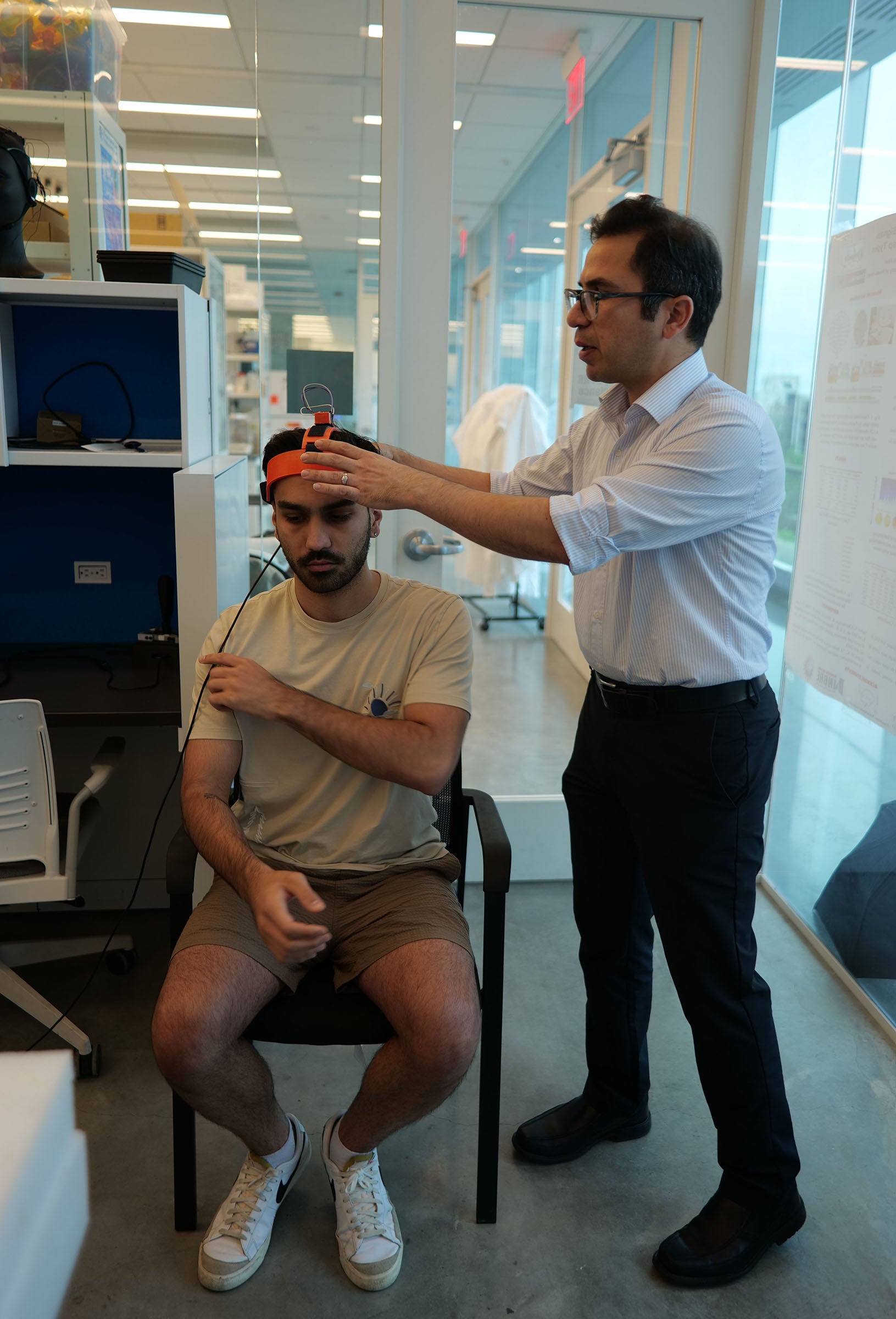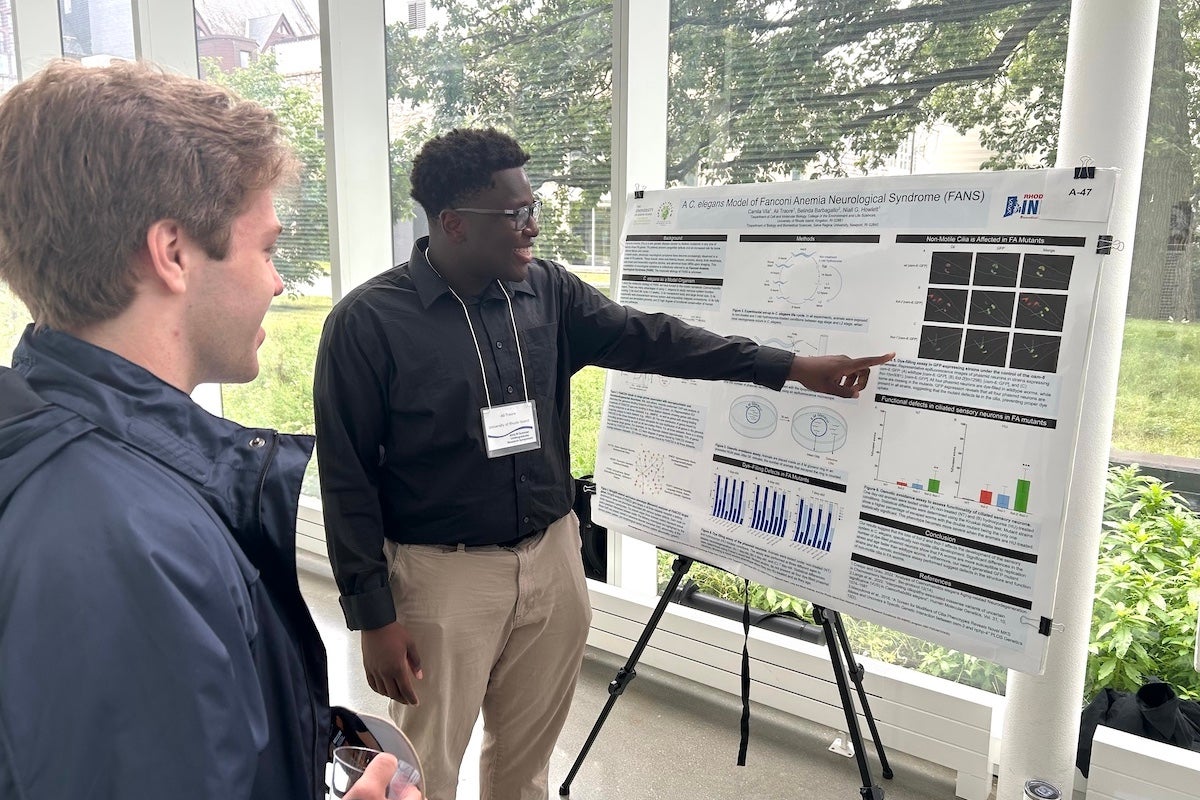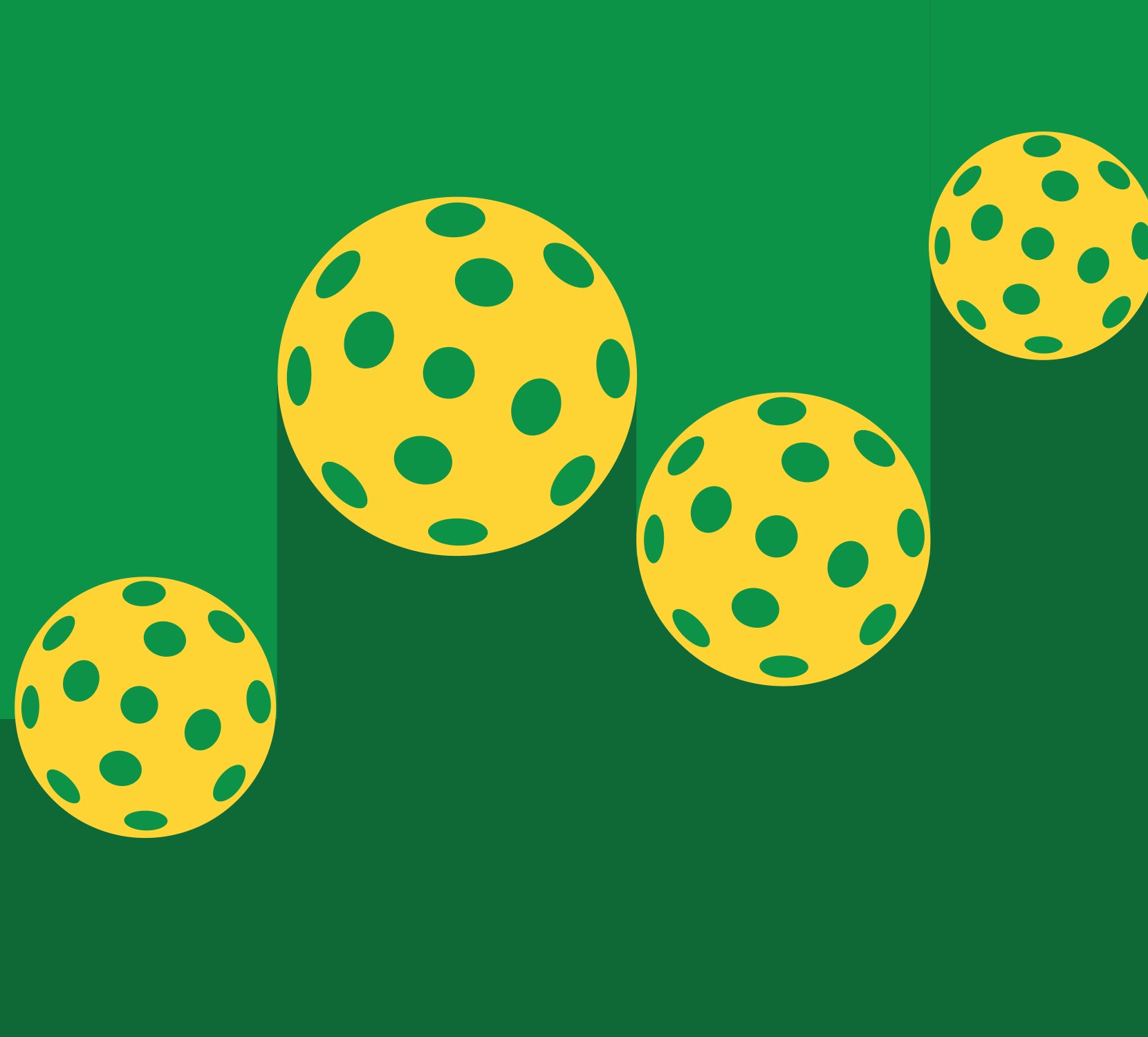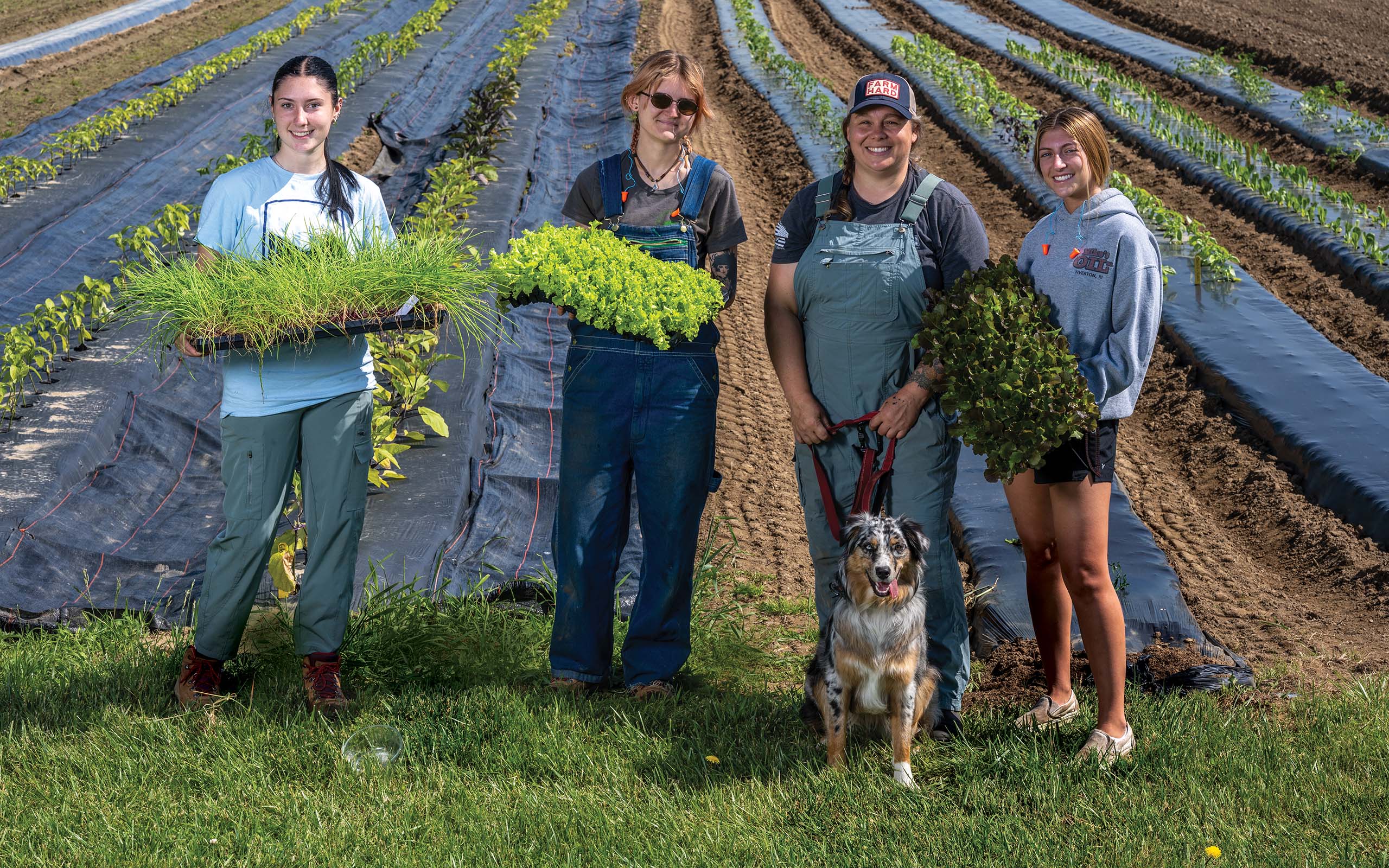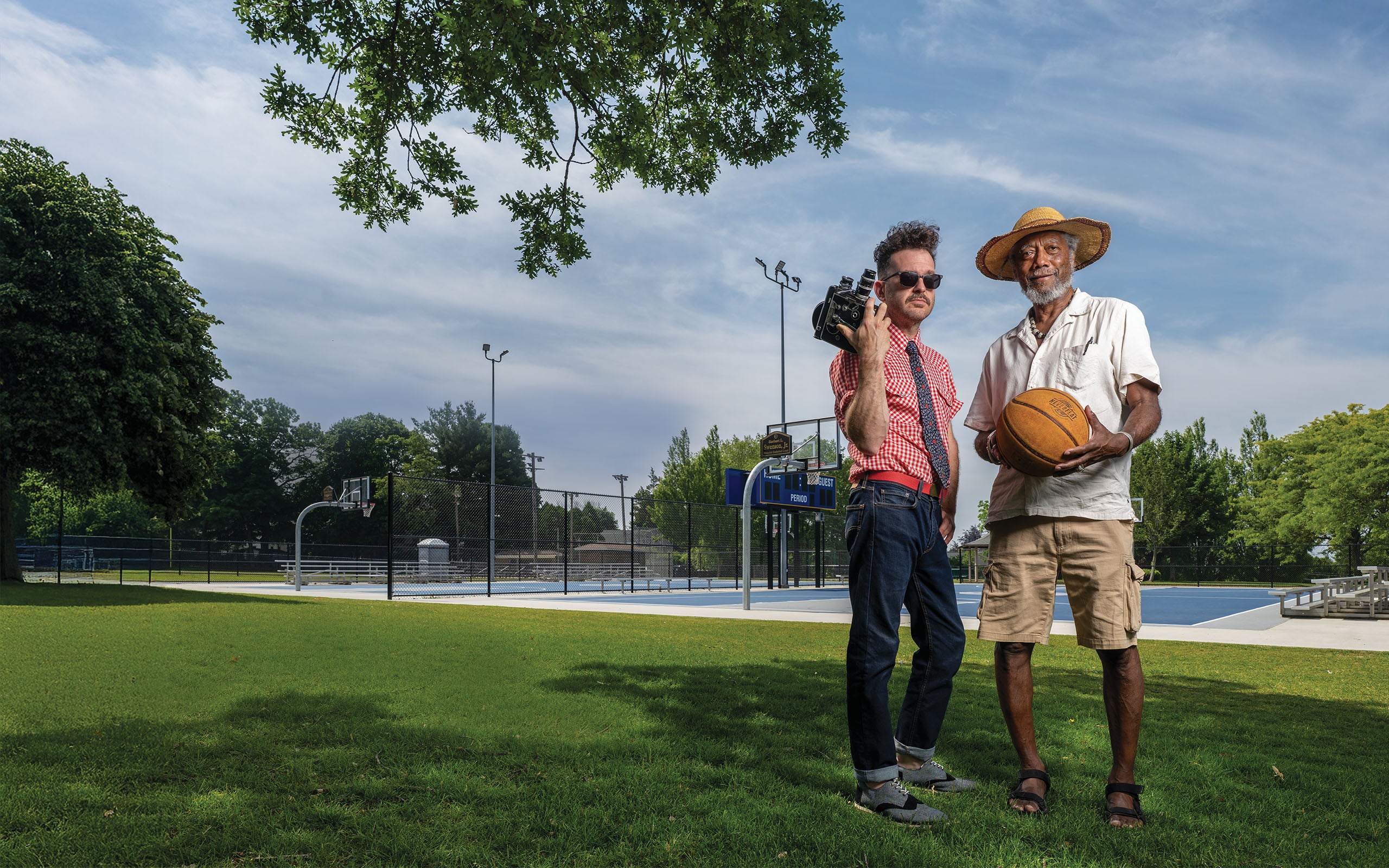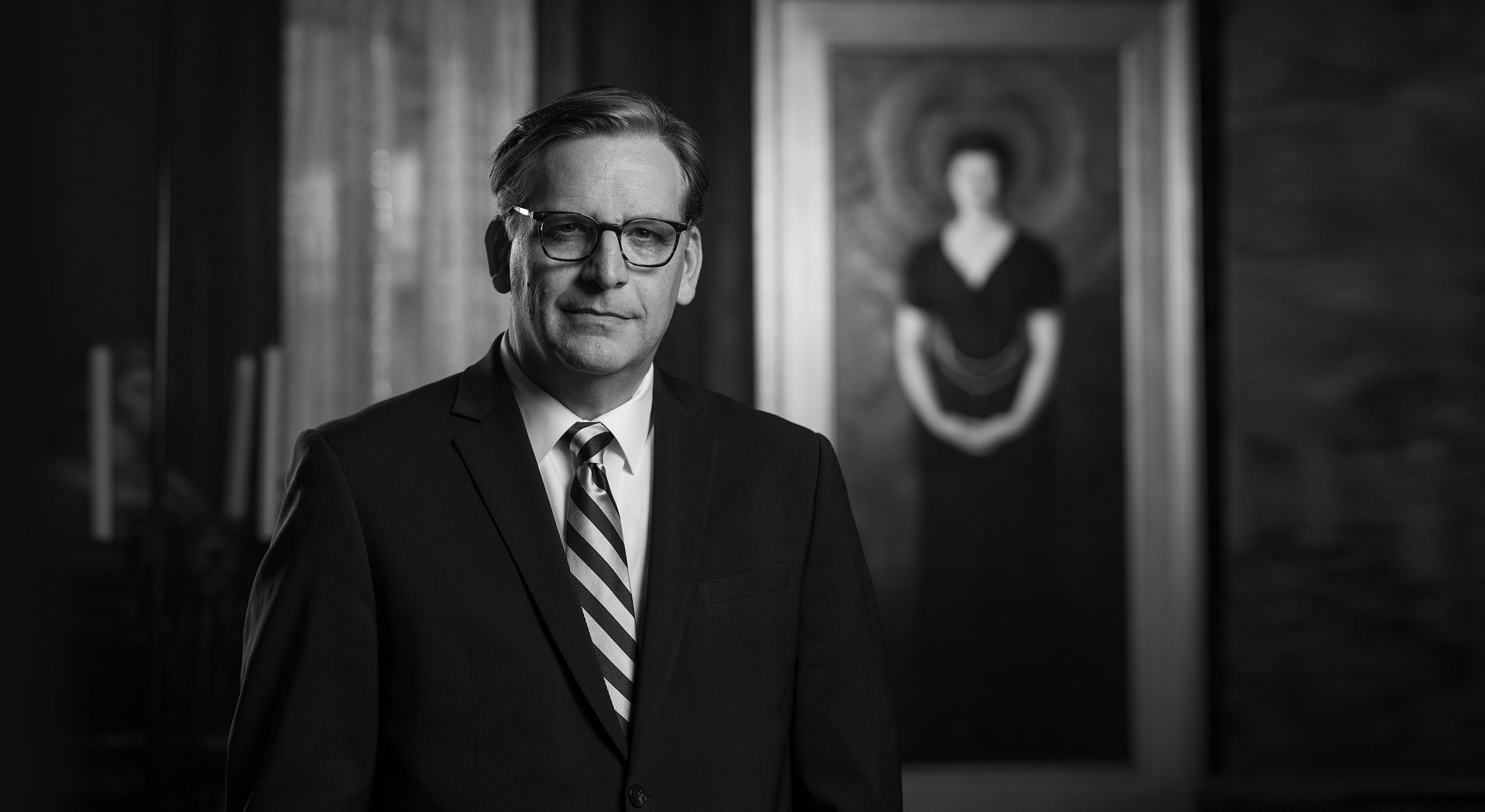URI engineering professor recipient of NSF CAREER Award for assistive and rehabilitative robotics research
KINGSTON, R.I. – August 6, 2025 – Severe motor impairment such as paralysis and degenerative conditions can limit a person’s ability to perform certain dexterous tasks. Currently, there are technological advancements that can aid in restoring some of this ability, but they can be invasive, requiring surgical implants that create drawbacks. University of Rhode Island assistant professor Reza Abiri was recently awarded a National Science Foundation CAREER Award for the development of novel shared autonomy multimodal artificial intelligence to achieve comparable levels of dexterous manipulation using fully noninvasive, human-centered technologies.
The award, titled “Versatile and high-performance shared autonomy paradigms for assistive and rehabilitation robots,” aims to develop a noninvasive intelligent shared control framework with direct engagement from users that would enable individuals with severe motor impairments to interact with their environment more naturally and independently. The Faculty Early Career Development (CAREER) Program offers prestigious awards in support of early-career faculty who have the potential to serve as academic role models in research and education and to lead advances in the mission of their department or organization.

“I’m deeply honored to receive this recognition. The NSF CAREER Award is not only a significant personal milestone, but also a strong validation of my broader vision to make assistive robotics more accessible, intelligent, and human-centered through the development of novel AI algorithms,” said Abiri.
Abiri joined URI’s electrical, computer and biomedical department in 2021 and started his research laboratory on Translational Neurorobotics. He has a mechanical engineering Ph.D. focusing on controls and systems and is a Ryan research assistant professor of neuroscience. He was drawn to URI because of its multi-disciplinary programming and collaborative expertise and location to industry relevant to his work. His background research, including post-doctoral training at the University of California San Francisco, and UC Berkeley, is focused on developing both invasive and non-invasive AI-driven brain-machine interfaces to help stroke survivors and individuals with physical disabilities perform motor training or control robotic systems, such as third-limb interfaces.

This NSF CAREER Award builds on that foundation and represents a broader vision of his previous NSF grant awarded in 2023. In this new project, the aim is to amplify low-dimensional bio signals—such as those generated by simple head movements, muscle activity, or eye motions—into high-dimensional control commands for assistive robotic arms to interpret. The patient wears a headpiece connected to sensors that relay information based on head movements. The head movements signal the robotic arm to move left or right toward an object. A camera simultaneously sends information to the same system, using artificial intelligence to determine perception and environmental factors and assist in grasping, lifting, and moving the object in real-time.
“Ultimately, we aim to empower individuals with paralysis to perform complex tasks, such as grasping and object manipulation, with a level of precision and responsiveness that rivals invasive systems,” said Abiri.

A particularly meaningful aspect of the CAREER program is its emphasis on education—this award will also allow Abiri’s team of researchers to translate their research into new knowledge, tools, and experiences that engage students at all levels.
This project actively involves mentoring both graduate and undergraduate students, who will contribute to the development and evaluation of AI algorithms and assistive robotic systems.
The award also supports a range of educational initiatives, including the creation of a new university course, annual hack-a-thon competitions where many people gather to engage in collaborative computer programming, and internship opportunities aimed at fostering early interest in human-centered robotics and AI to K-12 students. These outreach efforts are designed to extend participation and promote diversity in STEM fields.
The research will also involve many collaborative partnerships. “While the core research will take place within my lab, we have also teamed up with medical schools, rehabilitation centers, and robotics industry partners based in Rhode Island and Massachusetts to support real-world testing and technology translation,” said Abiri.
The $546,848 award will fund this project over the next five years. The award brings the total NSF CAREER awards in the College of Engineering to six in the last five years.
This press release was written by Krysta Murray, a writer with the URI College of Engineering.
Latest All News
- Student researchers present dynamic biomedical studies during Summer Research SymposiumKINGSTON, R.I. — Aug. 7, 2025 — More than 350 students and faculty members from 10 colleges and universities around the state converged on the University of Rhode Island Aug. 1 to showcase 150 biomedical research projects they’ve spent the summer studying, as RI-INBRE, RI-EPSCoR-NEST, and Navy STEM hosted URI’s 21st annual Summer Research Symposium. […]
- URI Magazine Summer 2025Learn about a film bringing a mythic local tradition to life, URI's land-grant university mission, the mystery behind Isabella Stewart Gardner Museum's famed art heist—and much more.
- The Pickleball WavePickleball is America’s fastest growing sport; URI alumni, students, and faculty are riding the wave, too.
- A Debt to History – Why URI’s Land-Grant Mission Still MattersIt’s the “Why” of what we do at URI–ensuring research serves and positively impacts Rhode Island communities.
- More Than Hoops – An American StoryEvan Villari ’02 and Len Cabral are working on a film that will tell the story of the legendary North Providence Summer Basketball League.
- Chasing the Storm2025 marks the 35th anniversary of the largest art heist in history. Anthony Amore ’89 has spent 20 years searching for the stolen art—and he’s more determined than ever to find it.



